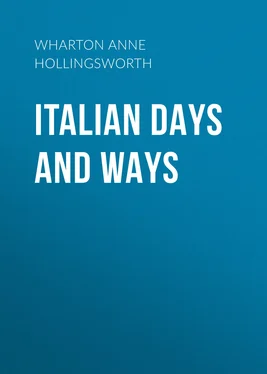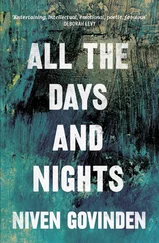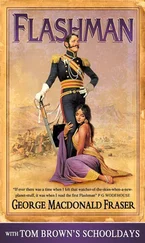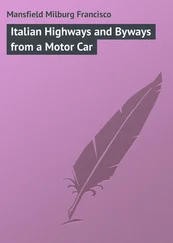Anne Wharton - Italian Days and Ways
Здесь есть возможность читать онлайн «Anne Wharton - Italian Days and Ways» — ознакомительный отрывок электронной книги совершенно бесплатно, а после прочтения отрывка купить полную версию. В некоторых случаях можно слушать аудио, скачать через торрент в формате fb2 и присутствует краткое содержание. Жанр: Путешествия и география, foreign_antique, foreign_prose, на английском языке. Описание произведения, (предисловие) а так же отзывы посетителей доступны на портале библиотеки ЛибКат.
- Название:Italian Days and Ways
- Автор:
- Жанр:
- Год:неизвестен
- ISBN:нет данных
- Рейтинг книги:4 / 5. Голосов: 1
-
Избранное:Добавить в избранное
- Отзывы:
-
Ваша оценка:
- 80
- 1
- 2
- 3
- 4
- 5
Italian Days and Ways: краткое содержание, описание и аннотация
Предлагаем к чтению аннотацию, описание, краткое содержание или предисловие (зависит от того, что написал сам автор книги «Italian Days and Ways»). Если вы не нашли необходимую информацию о книге — напишите в комментариях, мы постараемся отыскать её.
Italian Days and Ways — читать онлайн ознакомительный отрывок
Ниже представлен текст книги, разбитый по страницам. Система сохранения места последней прочитанной страницы, позволяет с удобством читать онлайн бесплатно книгу «Italian Days and Ways», без необходимости каждый раз заново искать на чём Вы остановились. Поставьте закладку, и сможете в любой момент перейти на страницу, на которой закончили чтение.
Интервал:
Закладка:
We climbed over the ruins of the old temples and sat upon the town wall overlooking the sea, while Angela made a fairly good sketch of the temples. Zelphine and I bought coins and pottery from children who, being without visible habitation, seemed to have literally sprung from the soil. Finally our vetturino warned us that we had better set forth at once if we wished to reach Cava before nightfall.
At Battipaglia we resumed our former horses and driver. Zelphine whispered something to me about his face being rather red. I quite agreed with her, but as the mention of the fact could not be of any especial advantage, the other carriage being already far in advance and no person at hand to take the reins, there was nothing to do but to set forth on our homeward journey, despite some misgivings upon Zelphine's part and mine.
We had not left Battipaglia before I realized that our gravest fears were fulfilled. Our driver was what you men picturesquely call "gloriously drunk"—we practical women would use a less dignified adverb. He was as happy as a lord, cracking his whip and dashing through the streets of Battipaglia in fine style. We soon passed the other coach, containing Mrs. Coxe's friends. They called after us, but must have seen that we had no time for conversation en route ; indeed, like Cowper's citizen "of credit and renown," we passed everything on the road. Zelphine and I were on the front seat, facing Mrs. Coxe and Angela. They, happily, did not grasp the situation at once, but when they did the terror written on that dear old lady's face was something never to be forgotten. Angela, with resolute cheerfulness, chatted away about anything and everything, especially about Mrs. Coxe's experiences in Honolulu, her favorite subject of conversation. I shall never hear of that island kingdom of the Pacific without seeing before me Mrs. Coxe's agonized face.
Remembering that there lay before us a long stretch of road overhanging a sharp declivity, Zelphine and I made a desperate attempt to stop our hilarious vetturino in his mad career. Finding that our remonstrances excited him to more strenuous exertions, Zelphine tried the effect of her few available words and many eloquent gestures upon the small boy, urging him to make his brother drive more carefully, telling him that the old lady of the party was very much alarmed, and advising him to get the whip into his own hands. This, however, proved to be impossible; the boy, well frightened himself by this time, only succeeded in getting hard words and a shaking. Give up his whip! Not he. As well ask a soldier to lay down his arms. The whip was his pride and joy, his pièce de résistance , so to speak, with which he awoke the echoes of these slumbering old Italian towns, bringing the inhabitants, men, women, children, cats, dogs, and chickens, to the sidewalk to witness our rapid transit. Even those among our own countrymen who pride themselves most upon their skill in annihilating space could not have made better time than we did as we rattled over that Calabrian highway. Fortunately, the horses were well-trained and steady enough to balance the driver's eccentricities. Perhaps they were accustomed to them by long experience. Be this as it may, we proceeded on our way without any accident, passing the dangerous part of the road before darkness overtook us.
We clattered through Salerno at a tearing gallop, and as we neared La Cava the whip-cracking was resumed with renewed vigor, bringing the citizens to their doors and windows. Some of them, indeed, followed the carriage, crying out, "Prima donna! Prima donna!"
"What can they mean?" asked Mrs. Coxe, looking as though she expected to be attacked by a furious mob. Zelphine reminded her that as we drove by the theatre in the morning we had noticed a poster announcing that a grand opera was to be given in Cava that evening. In our gay morning spirits we had even thought that it might be pleasant to assist at the function. Now the most that we dared to hope was that we might reach the hotel in safety. Troops of children ran after us, repeating the shout of "Prima donna! Prima donna!"
"We are honored by being mistaken for a part of the opera troupe," said Zelphine, laughing, "and Angela is evidently the leading lady, as they are all looking at her."
Angela, sitting erect on the back seat, her costume as crisp and immaculate as if she were on her way to a horse-show, her jaunty hat at the most stylish angle even if the crown was off color, looked indeed like a leading lady, albeit a trifle pale and in need of the aid of the rouge-pot of the greenroom.
When we reached our hotel we were all exhausted by the fatigue of the day and the long strain of the afternoon; but Mrs. Coxe showed herself the thorough-going traveller that she is by stopping not for rest or refreshment until she had laid a detailed account of our experiences before the proprietor.
He came to us later, after a visit to the driver's home, and reported him as covered with confusion and filled with remorse. " Ecco, ecco , he is the penitent one now!" exclaimed the padrone . "His parents have scolded him soundly, and have threatened to beat him with a stick. He is in tears, the sorrowful one! It is the first time, and it will never happen again!"
"All of which would not mend our bones if they had been broken!" said Mrs. Coxe, stoutly. "It is your duty to give your patrons good, safe drivers."
The padrone then called upon the saints to witness to the fact that he had never known an accident to befall any of his patrons, repeating that this was Antonio's first offence, and that he must have been drinking some bad stuff at the tavern, as good wine would never so set the brain on fire. The proprietor has a frank manner that gives one the impression that he is speaking the truth; we are inclined to believe him, although we have been warned not to allow ourselves to be deceived by appearances in this land of ready eloquence. Our valiant countrywoman having made her protest for the party, and this disagreeable duty having been taken off our shoulders, we went into dinner with high spirits and famous appetites.
Zelphine and I are so wide awake after our exciting drive that we are devoting the evening to letter-writing, both of us being sadly in arrears. The other guests of the Hotel S. have betaken themselves to their slumbers, and we enjoy undisturbed possession of the only warm room in the house. A wood fire blazes on the hearth, and as we bask in its genial warmth we shiver at the thought of our rooms upstairs, which, with their stone floors, are of about the temperature of refrigerators.
Sorrento, March 11th.We left Cava on Wednesday, and made the tour from there to Amalfi in the brilliant morning sunshine. This is another "Cornice Drive," and far finer, I think, than that along the Riviera. The road winds above, beneath, and beside rugged cliffs of great height, always with the sea in full view. Often from airy summits we looked down upon fishing villages and towns built around bays and inlets, as Cetara and Atrani, while upon projecting headlands are many watch-towers, now used chiefly as dwellings.
We needed not to be told that the making of macaroni is one of the chief industries of Amalfi. As we drew near the town many yards of it were to be seen hanging upon lines like a wash or spread upon the grass to dry.
Amalfi is charmingly situated at the entrance to a deep ravine, surrounded by mountains and rocks of the most picturesque forms. We climbed up the sixty steps of the Cathedral of St. Andrew. Mrs. Coxe and some of her party were carried up in chairs by two stout Calabrians, but we preferred to walk, turning every now and then to gaze upon the enchanting view spread before us. At the top of the slope is a spacious garden terrace full of flowers, with roses climbing all over its walls.
Читать дальшеИнтервал:
Закладка:
Похожие книги на «Italian Days and Ways»
Представляем Вашему вниманию похожие книги на «Italian Days and Ways» списком для выбора. Мы отобрали схожую по названию и смыслу литературу в надежде предоставить читателям больше вариантов отыскать новые, интересные, ещё непрочитанные произведения.
Обсуждение, отзывы о книге «Italian Days and Ways» и просто собственные мнения читателей. Оставьте ваши комментарии, напишите, что Вы думаете о произведении, его смысле или главных героях. Укажите что конкретно понравилось, а что нет, и почему Вы так считаете.












